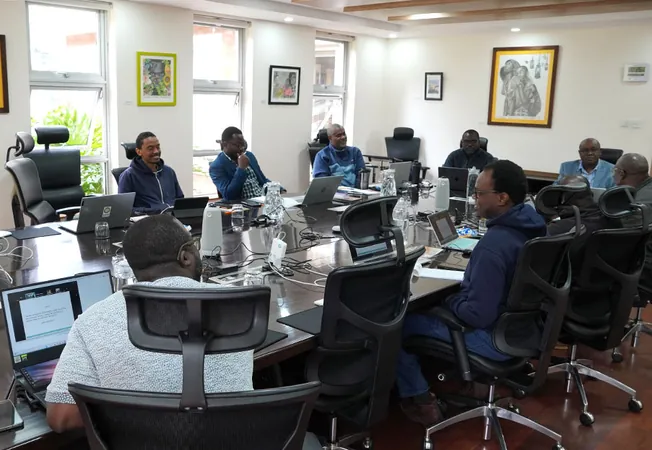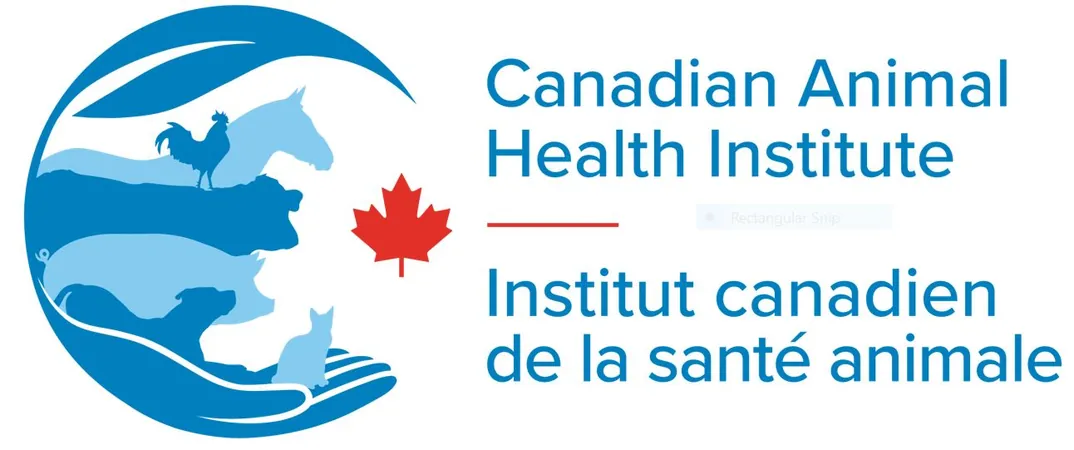
Groundbreaking Symposium Unites AI Innovation and Ecology in Africa
2025-09-22
Author: Noah
A Historic Meeting of Minds in Nairobi
In a remarkable intersection of faith, science, and ethical innovation, the Jesuit Conference of Africa and Madagascar (JCAM) gathered the African Jesuits in Science (AJIS) for the 2025 Symposium themed “Smart Planet, Just Future: AI and Ecology in the Fight for Sustainability.” This five-day event, held from August 4-8 at AFRICAMA in Nairobi, solidified the African Church's dedication to scientific leadership in the realm of ecological justice.
A Call for Global Good Amid Local Challenges
The symposium assembled a diverse array of Jesuit scientists, scholars, and technology experts from across Africa and beyond to explore the dual role of artificial intelligence (AI) and ecological innovation in addressing pressing local issues like climate change, food insecurity, and resource-strapped health systems. This initiative highlights the Society of Jesus' commitment to education, justice, and scientific exploration in the 21st century.
Revolutionary Research on Display
Attendees showcased 12 visionary research projects that seamlessly blended technology with practical applications. Spanning four critical fields—Quantum Physics, Biogas, AI Ethics, and Asteroid Defense—these projects illuminated key ethical issues concerning our future, especially for communities in the Global South.
Quantum Physics Meets Biological Evolution
In an eye-opening session, Jerome Paschal Manyahi from Mwenge Catholic University proposed a fusion of quantum probability and biological evolution, revealing how the probabilistic logic of quantum mechanics could underpin life itself. Additionally, Williams Dhelonga discussed the potential for interstellar travel as a revolutionary response to Earth's ecological challenges, addressing both propulsion techniques and AI's humanity-expanding role.
AI's Dual-Edged Sword in Ecology
The serious implications of AI were scrutinized in various presentations. Boniface Mbouzao explored its transformative effect on African education while cautioning against the pitfalls of inequitable access and insufficient funding. Didier Cimalamungo presented a robust ethical framework to ensure AI technologies promote ecological justice instead of worsening environmental degradation.
Empowering Health and Agriculture with AI
Some researchers focused on practical AI applications. Armel F. Setubi evaluated electronic adherence monitors for Antiretroviral therapy, highlighting their potential to significantly improve patient outcomes in Africa. Meanwhile, Alain Pitti Djida showcased how advanced AI tools like AlphaFold can aid in accurately diagnosing the African Cassava Mosaic Virus, potentially saving vital crops.
Tackling Environmental Issues Head-On
In the final session, researchers presented solutions to pressing social issues. Pierre Luhata Lokadi's study identified household biogas as a viable alternative to up to 76% of charcoal use, addressing both indoor pollution and deforestation. Similarly, Herintsitohaina Mahasedra Ratsimbarison proposed a hydropower model that aligns with community needs and environmental sustainability.
Africa: Leading the Charge in Science and Sustainability
These groundbreaking contributions from the symposium underscore the wealth of African scientific inquiry and its importance on a global scale. With initiatives in agriculture, education, health, and ethical governance of emerging technologies, African scholars are not just responding to challenges; they are actively shaping worldwide conversations on science, sustainability, and justice.









 Brasil (PT)
Brasil (PT)
 Canada (EN)
Canada (EN)
 Chile (ES)
Chile (ES)
 Česko (CS)
Česko (CS)
 대한민국 (KO)
대한민국 (KO)
 España (ES)
España (ES)
 France (FR)
France (FR)
 Hong Kong (EN)
Hong Kong (EN)
 Italia (IT)
Italia (IT)
 日本 (JA)
日本 (JA)
 Magyarország (HU)
Magyarország (HU)
 Norge (NO)
Norge (NO)
 Polska (PL)
Polska (PL)
 Schweiz (DE)
Schweiz (DE)
 Singapore (EN)
Singapore (EN)
 Sverige (SV)
Sverige (SV)
 Suomi (FI)
Suomi (FI)
 Türkiye (TR)
Türkiye (TR)
 الإمارات العربية المتحدة (AR)
الإمارات العربية المتحدة (AR)